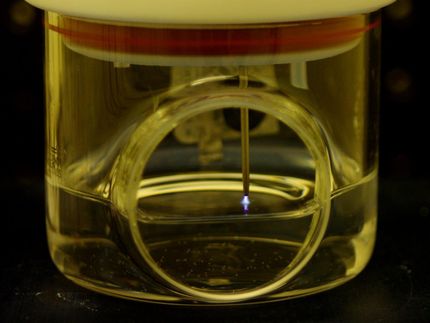WACKER Endows a Chair in Macromolecular Silicon Chemistry
Advertisement
To mark 100 years of its corporate research facility, WACKER is to endow the world's first chair in macromolecular silicon chemistry. It announced the move at the WACKER Silicone Award ceremony in its home city of Munich, the Bavarian state capital. WACKER is among the world's most important silicone producers.
Over a period of five years, WACKER will fund the chair with a total endowment in the range of EUR 6.5 million for human resources and equipment. The chair, which was awarded following an international selection procedure, is to go to Munich's Ludwig Maximilians University.
"The new chair underscores the huge economic importance of silicon and silicone chemistry, and will promote basic scientific work in this important field," commented Dr. Peter-Alexander Wacker, WACKER President and CEO, on the endowment. Industrial silicone chemistry, with its almost unlimited application potential, already represents a global market of more than EUR 8 billion, and will show above-average growth in future.
Dr. Wacker also sees the chair as improving Germany's attractiveness as a research base. "This is an ideal opportunity to convey silicone's wide variety of products and applications to the young scientists of tomorrow, and encourage them to carry out their own scientific work," he emphasized..
"This trust is a clear reflection of the Chemistry and Pharmacy department's research achievements. The university's HighTechCampus LMU in Großhadern, Munich provides perfect working conditions and an attractive scientific environment," states Professor Bernd Huber, Rector of the University. The department has undertaken far-reaching reforms in research, teaching, organization and personnel in recent years: research is more interdisciplinary and clearly focuses on promising fields; a new Bachelor's program in "Chemistry and Biochemistry" has been introduced; the department has been reorganized; and a new generation of scientists is at the helm.
Organofunctional oligomeric and polymeric silicon compounds, whose structure/effect relationships have still not been completely resolved, are a particularly interesting field for basic research in the new chair. At an application level, this could involve, for example, the development of new materials with tailored properties in combinations that were previously incompatible, such as high hardness, water repellency, gas permeability, UV stability, heat resistance, flame resistance together with good low-temperature flexibility. Other research work could focus on silicon polymers and hybrid polymers, so-called sol-gel, chemistry for coating surfaces, and silicon nanoparticles. Particular attention will be paid to interdisciplinary research at the crossroads between physics, biotechnology, pharmacology, environmental chemistry and material sciences.
Silicones are the basic materials for materials with highly diverse product properties, and almost unlimited applications. Because of their versatile properties, they can be found in almost all fields, in construction and transport, automotive engineering, electrical and electronics, textiles and paper, in pharmaceutical products or in cosmetics. Silicone rubber grades in auto engines protect the electronics against moisture and dirt. In surface coatings, silicone additives provide the desired gloss. Silicones prevent the detergent in the washing machine from foaming over and, in shampoo, silicones give hair its healthy sheen. Silicones are also ubiquitous in medical technology. Physiologically harmless and extremely durable, they are used for medical tubing or sealing filter elements in dialysis equipment.





































































